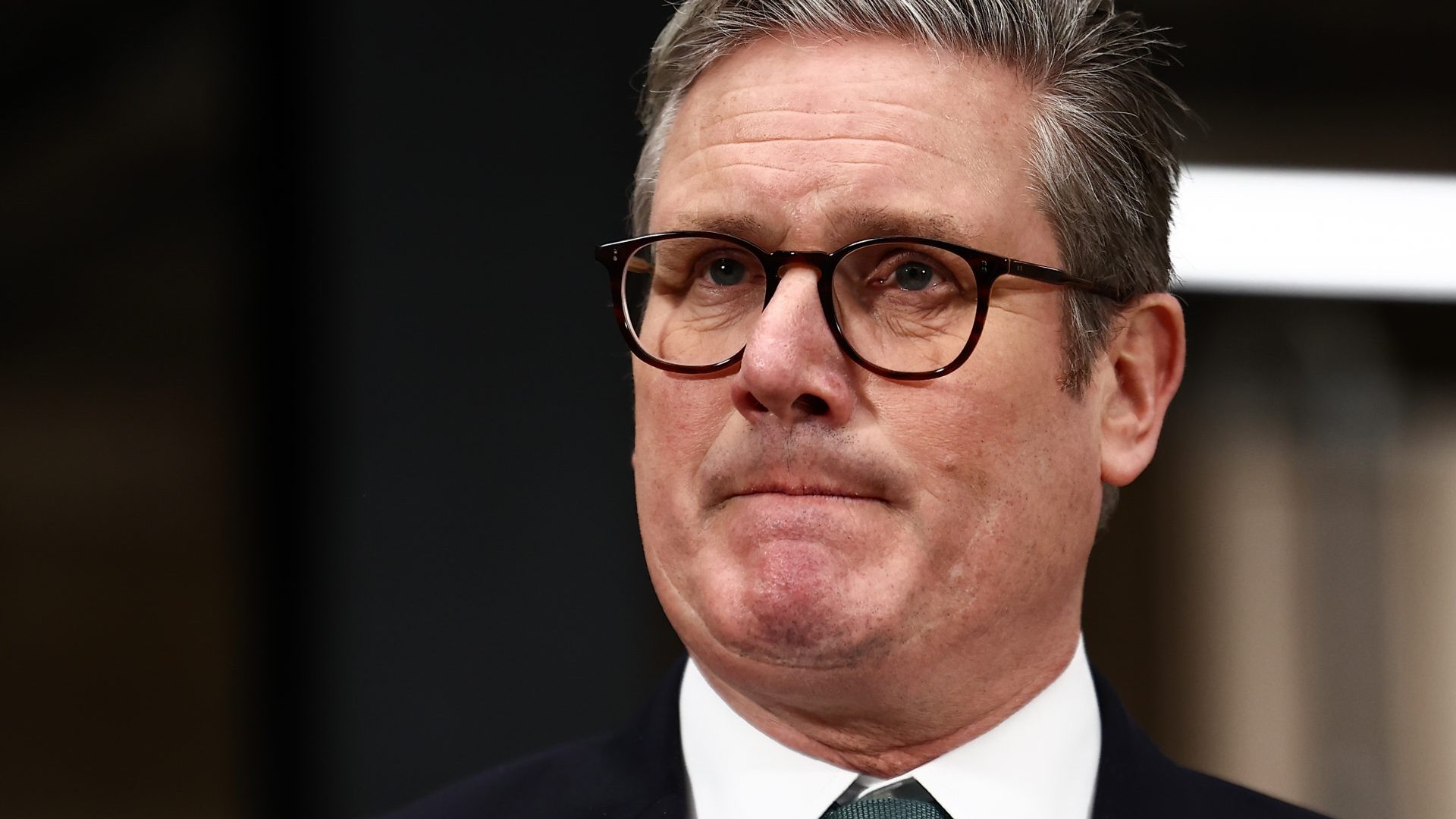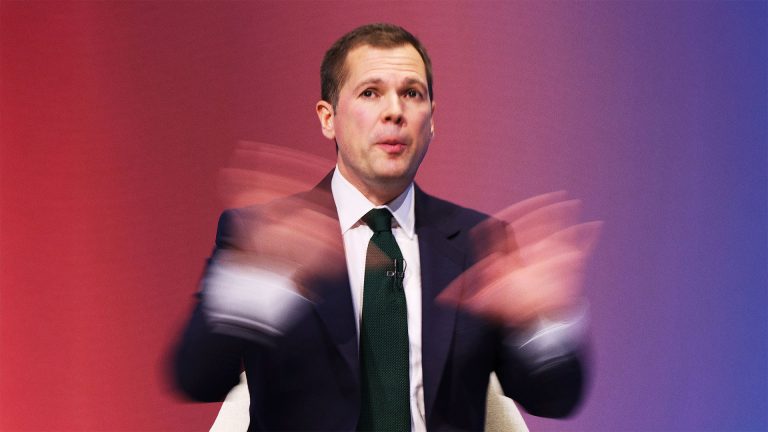When they got elected last July, it certainly seemed as if Labour had paid a lot of attention to why it had lost the 2010 general election.
There had been a global financial crisis in 2008, caused by the subprime mortgage crisis in the USA, which had knock-on effects on pretty much every major economy across the planet.
As a former chancellor with a decade’s experience, Gordon Brown was fundamental in coordinating the international response – but that did nothing for him at home, as the Conservative Party successfully framed the crisis not as a global one, but as a result of Labour’s wasteful spending decisions.
The charge was, in reality, both nonsensical and unfair. Brown, after all, hadn’t been responsible for issuing millions of ridiculous mortgages in the US, nor had he been packaging them as AAA-rated, ultra-safe, financial products.
While he arguably could have regulated UK banks more strictly, the Conservatives had, if anything, called for him to do the opposite. And until the crisis actually bit, the Tories had not just endorsed Labour’s spending plans, but they’d promised to continue them for at least two years if they won the election.
None of that mattered: David Cameron and George Osborne successfully blamed Labour for a global problem, and it won them the election. Keir Starmer’s Labour Party is clearly still aware of this era of politics: much of its tactical approach is still inspired by this era.
Starmer and Reeves even lifted the Cameron/Osborne trick of saying they’d stick to the previous government’s spending plans, only to say once they got elected that things were even worse than they thought, so they’d have to rip them up. It certainly seemed like they were well aware of what went wrong for Labour in 2010.
Until now. Labour has managed to start 2025 with something resembling an omnicrisis. Elon Musk, soon to be a sort-of member of Donald Trump’s government, is calling for Starmer to be overthrown (good luck with that “special relationship”, Peter Mandelson). Labour’s polling and Starmer’s personal ratings are both in the toilet.
And the government is being squarely blamed for grim economic news by both the Conservatives and the media, to such an extent that headlines suggesting Rachel Reeves’ job is in doubt are now probably inevitable for as long as she remains chancellor – whether that’s a month or a decade.
This isn’t the 2008 financial crisis in that there isn’t one obvious and glaring cause behind the malaise – but it is certainly an international crisis. Governments across the world, including the UK, borrowed a huge amount of money in 2008-2011 to “bail out the banks” but also to prop up their economies. Despite all the rhetoric of “austerity”, none of this was paid back before the Coronavirus pandemic hit, requiring another massive round of borrowing by governments.
That means the UK has a lot of government debt. In 2007, the UK’s national debt was about 42% of GDP (which is, roughly speaking, a measure of our national income). By 2011, that was nearer to 80% of GDP – and today, debt is about 104% of GDP. This means that the cost of borrowing is extremely important to the state of public finances, and that we need to easily be able to refinance our debt.
Market confidence matters a great deal – while it used to be fashionable to say debt doesn’t matter for a country like the UK, Liz Truss’s swift crashing of the economy in 2022 showed it does. At the moment, the markets are jittery: Donald Trump has the ability to cause huge global economic problems, especially if he introduces tariffs. Consumer confidence seems low.
That gives Reeves very limited room for manoeuvre: she has to keep markets onside, which means spending will be tight and she can’t really pick many fights. But none of this is really a UK problem. French debt-to-GDP rose from 65% in 2007 to 112% today. Italy has jumped from 104% to 139%, and the USA’s has soared from 65% or so in 2007 to 123% today.
Labour has been in power less than a year and is navigating the same painful inheritance as most other major economies – but politically, they seem unable to communicate that. It is absolutely ludicrous that Starmer and Reeves are getting blamed for the current dire economic positions, but the attacks are sticking. They just do not seem to have a counter-narrative.
Starmer’s attempt to seize the narrative on the economy on Monday showed the extent of the debacle. The intention of the day had been to announce an unprecedented push towards AI for economic growth – accepting 50 out of 50 recommendations to boost growth. Steps include building new supercomputers, buying huge amounts of high-powered chips, creating “AI growth zones”, and commercialising the UK’s holy grail of data: NHS patient data.
There are huge questions over this stuff, not least that every prime minister since David Cameron has promised investment in AI to deliver growth, or that Starmer’s announcements have billions of pounds of spending implications and aren’t factored into any existing governmental spending plans.
But there are two bigger problems than that. The first was that during the press conference, Starmer refused to confirm that Reeves would still be chancellor at the next election, which inevitably attracted headlines despite him otherwise expressing full confidence in her (Starmer had previously promised David Lammy would be foreign secretary at the next election).
Yes, such things are cheap shots from the lobby, but Starmer should know how to deal with them – and the “uncertainty” over Reeves’ future overshadowed what the government had intended to be a major policy announcement on AI.
Starmer was perhaps lucky that his inept answer on Reeves overshadowed another of his responses, though. A Channel 4 News reporter made the eminently reasonable point that building supercomputers, data centres and providing the energy to run them takes years – meaning any contribution toward growth would take a long time, too. Given Labour seems to be relying on AI to provide growth (its budget having done nothing on that front), this is a big issue.
Here, Starmer seemed to make a bizarre claim – saying that AI could double the UK’s economic productivity in less than five years. This may seem technical or wonkish, but it would be a huge deal: labour productivity (for example) measures how much an average worker produces in an hour. If you can double that, then GDP (and with it wages) increases hugely.
This would be the silver bullet – but given UK productivity has barely increased over the last few decades, improving by less than 1% a year, which is why our economic growth has been so sluggish. Here’s what Starmer said AI could do for growth, in full:
“I don’t think it’s going to take five or ten years to double productivity, not for a moment, and I’ve spent many, many hours pushing this around with AI experts to test this proposition.
“I’m absolutely confident that the time frames we’re talking about here are much, much shorter than that – and that it’s not a 10% increase in productivity we’re talking about, there are many who say productivity will double in a very short period of time – that’s the potential for the difference that it would make.”
The quote is included in full because when I showed an extract of it to economists or people working in the City, they assumed Starmer must have been talking about something different, or something ambiguous – but in this context, it seems like he is genuinely talking about economic productivity.
This is the most boosterish of boosterish claims about AI. It’s claiming a full-scale economic revolution within the next five years, which would transform the country and the nature of work overnight. It is, in other words, completely unrealistic.
Even most AI advocates and enthusiasts would say this is vastly overblown. More than one suggested it sounded like Starmer had been sold an extremely over-optimistic vision of what AI could do and said they thought it sounded like the Tony Blair Institute’s approach and rhetoric.
The economists and AI specialists were united on one thing, though: they hoped there was more to the government’s plans for growth than this. Their worst-case scenario was that the prime minister had genuinely been convinced AI would deliver huge growth and get the country out of its tricky financial state on its own – as when it almost inevitably fails to deliver as quickly or dramatically as hoped, that would leave the government floundering.
The danger is the government is in a mess both politically and in policy terms on the economy. Its AI announcement has a lot which could actually deliver, but at the moment isn’t backed up with any detail or any spending.
AI doesn’t work as a narrative to counter the attack that Labour has crashed or is crashing the economy, either. Most people probably missed the announcement altogether.
Labour needs a narrative on the economy and it needs a plan for the economy – two different tasks, neither of them simple. The risk at the moment is it seems completely lost on both fronts.
Rachel Reeves and Keir Starmer have been telling the nation that the public finances are dire and tough choices are necessary. The public certainly believes them on that front – but their narrative needs to have a second part, too, and fast.
That might be easier if there’s some substance behind it other than computers saving the day. How often does that work out in the movies?











